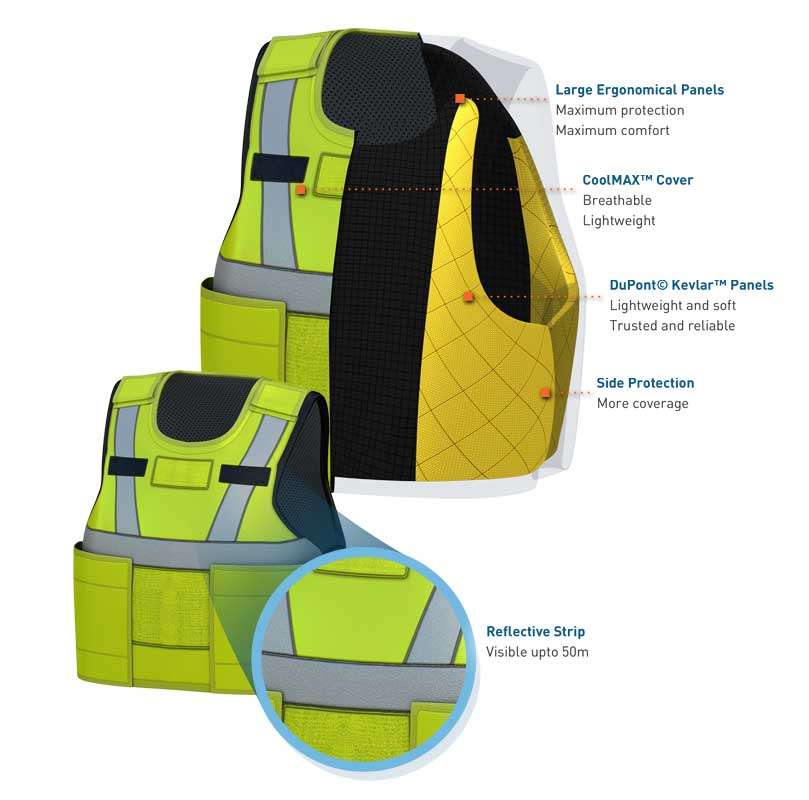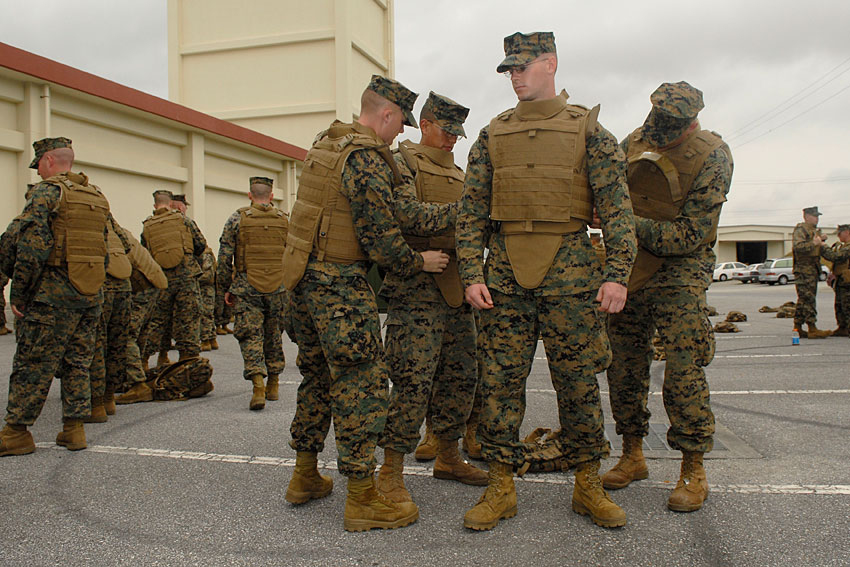In the beginnings, body protection was produced using silk. Extraordinary advances have been made since these circumstances to reflect the expanding risk of weapon and blade assaults.
Body protective layer, and its composite materials, has kept on being refined, and is presently appropriate and readily accessible for day by day use. Everyone now has a progressed and discreet protection.
Aramid fibers are one of the most popular materials used within bullet proof vests. Aramids are man-made plastics, and offer immense strength while remaining lightweight.
Para-aramid material is a development of the Aramids. The Para-aramids are used to make Kevlar® and Twaron®, which are commonly used in protective clothing. Since the 1970s, development of these fibers has increased the effectiveness of Kevlar®. Although Kevlar® only initially offered minimal protection from small arms fire, it is now able to offer ballistic protection that was not previously thought to be possible.

Hard armor is made from a material that was originally very heavy and ineffective. While Steel used to be the primary component of hard armor, Ceramics are now typically used to give the same levels of protection at a greatly reduced weight. This also allows the wearer the ability to move with ease.
More recent advances mean that now these hard armor ballistic plates can be made of lightweight polyethelene, making NIJ protection level III available at a minimal cost to maneuverability.
COOLMAX® fabric is used in many of the vest covers that are currently on the market. The CoolMAX® technology helps mitigate the heat caused by a vest that would otherwise be overwhelming for the wearer.
Historically, wearing a vest for prolonged periods would cause excessive sweating around, under, and on the vest. This would be a very uncomfortable situation. The CoolMAX® technology allows sweat to be pulled away from the body, and allows a cool temperature to be maintained.
CORDURA® is another advancement in technology that has greatly increased the versatility and durability of overt vests. Cordura® is made from fibers that have high tenacity. The fibers allow the vest covers to be very durable, and give them the ability to withstand a lot of wear and tear that would typically cause damage to vest covers.
GORE-TEX® materials allow vest covers to be breathable as well as heavily waterproof. This allows for someone wearing a vest to feel safe without being uncomfortable or having to worry about the ballistic panels being damaged by liquids.
The materials & technologies in body armor have provided the comfort, flexibility and confidence necessary for wearers to feel that their protective panels can be as effective as possible.

